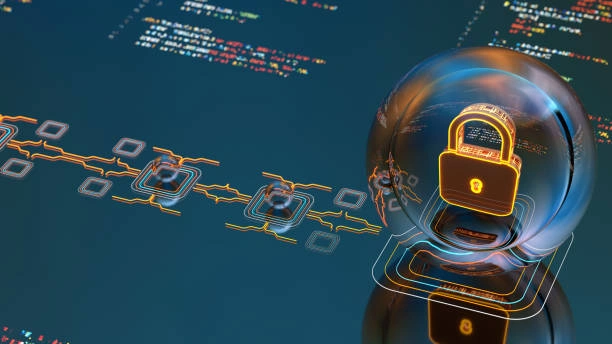Introduction
Blockchain technology is revolutionizing the digital world, and it’s not just about cryptocurrencies like Bitcoin anymore. This decentralized digital ledger system has the potential to impact numerous industries from supply chain management to secure data sharing. If you’re a tech enthusiast curious about the future of technology, you’re in the right place. In this post, we’ll explore the ins and outs of blockchain technology, its applications, and why it’s a game-changer for various sectors.
What is Blockchain Technology?
Blockchain technology is a decentralized digital ledger that records transactions across multiple computers. Unlike traditional ledgers, which are centralized and controlled by a single entity, blockchain operates on a peer-to-peer network. This makes it highly secure and transparent. Each transaction, or “block,” is linked to the previous one, forming a “chain” of records. This structure makes it nearly impossible to alter or delete any information once it’s been added to the blockchain.
How Does Blockchain Work?
At its core, blockchain technology relies on a network of nodes, or computers, to validate and record transactions. When a new transaction is initiated, it is broadcast to the entire network. Nodes then use complex algorithms to verify the transaction’s validity. Once validated, the transaction is added to a new block, which is then appended to the existing chain. This process ensures that all transactions are transparent and immutable.

What is Blockchain Technology?
Blockchain is a decentralized digital ledger that records transactions across multiple computers. Unlike traditional databases, blockchain ensures that information is transparent, secure, and cannot be altered retrospectively. Each block in the chain contains a list of transactions, and once a block is added to the chain, it becomes a permanent part of the digital ledger.
How Blockchain Works
The magic of blockchain lies in its decentralized nature. Instead of relying on a single central authority, blockchain operates on a peer-to-peer network. Each participant, also known as a node, has access to the entire ledger. When a new transaction occurs, it is broadcast to the network and must be validated by the nodes before being added to a block. This process, called consensus, ensures that all transactions are legitimate.
The Birth of Bitcoin
Blockchain’s most famous application is undoubtedly Bitcoin, the first-ever cryptocurrency. Created by an anonymous entity known as Satoshi Nakamoto, Bitcoin uses blockchain technology to facilitate peer-to-peer transactions without the need for intermediaries like banks. Bitcoin’s success has paved the way for thousands of other cryptocurrencies, each with its own unique features.
Beyond Cryptocurrencies
While cryptocurrencies are the most well-known use of blockchain, the technology’s potential extends far beyond digital currencies. Blockchains can be used in various industries to enhance transparency, security, and efficiency.
Supply Chain Management

One of the most promising applications of blockchain technology is in supply chain management. By recording every step of the production process on a blockchain, companies can ensure transparency and traceability. This not only helps in verifying the authenticity of products but also in identifying and addressing inefficiencies in the supply chain.
Voting Systems
Ensuring the integrity of voting systems is crucial for any democratic society. Blockchain technology can provide a secure and transparent method for casting and counting votes. With blockchain, each vote is recorded on a public ledger, making it nearly impossible to tamper with the results. This can help restore trust in the electoral process.
Secure Data Sharing
In today’s digital age, data security is a top concern. Blockchain technology can offer a solution by providing a secure method for sharing data. By encrypting data and recording it on a blockchain, organizations can ensure that sensitive information is protected from unauthorized access and tampering.
Smart Contracts
Smart contracts are self-executing contracts with the terms of the agreement directly written into code. These contracts automatically execute and enforce themselves when predefined conditions are met. Blockchain technology enables the creation of smart contracts, which can streamline various processes, reduce the need for intermediaries, and minimize the risk of fraud.
Decentralized Applications (DApps)
Decentralized applications, or DApps, are applications that run on a blockchain network rather than a centralized server. These apps leverage the benefits of blockchain technology, such as transparency and security, to provide innovative solutions in various fields, including finance, healthcare, and gaming.
Challenges and Limitations
While blockchain technology holds great promise, it is not without its challenges. Scalability remains a significant issue, as the current blockchain infrastructure struggles to handle a large volume of transactions. Additionally, the energy consumption associated with blockchain networks, particularly those using proof-of-work consensus mechanisms, is a concern.

Regulatory Landscape
The regulatory landscape for blockchain technology is still evolving. Governments and regulatory bodies worldwide are grappling with how to address the unique challenges and opportunities presented by blockchain. Clear and supportive regulations are essential for fostering innovation while ensuring consumer protection and financial stability.
The Future of Blockchain
Despite the challenges, the future of blockchain technology looks bright. Innovations such as proof-of-stake and sharding are being developed to address scalability issues. Meanwhile, increased adoption across various industries indicates that blockchain is here to stay. As technology continues to evolve, it is likely to become an integral part of our digital infrastructure.
Getting Started with Blockchain
For those interested in exploring blockchain technology further, there are several resources available. Online courses, forums, and communities can provide valuable insights and hands-on experience. Additionally, many organizations offer tools and platforms for developing blockchain-based applications.
Key Features of Blockchain
One of the most significant features of blockchain is its decentralization. By distributing the ledger across multiple nodes, blockchain eliminates the need for a central authority. This enhances security and reduces the risk of fraud. Additionally, blockchain uses cryptographic techniques to secure data, making it highly resistant to hacking and unauthorized access. Transparency is another key feature, as all transactions are visible to all participants in the network.
Types of Blockchains
There are several types of blockchains, each with its unique characteristics and use cases. Public blockchains, like Bitcoin and Ethereum, are open to anyone and offer high levels of security and transparency. Private blockchains, on the other hand, are restricted to specific participants, making them ideal for enterprise applications. Consortium blockchains are a hybrid, allowing multiple organizations to manage and control the network collaboratively.
Applications of Blockchain Technology
Blockchain technology has far-reaching applications beyond cryptocurrencies. Its ability to provide secure, transparent, and tamper-proof records makes it invaluable in various fields.
Supply Chain Management
In supply chain management, blockchain can track the movement of goods from the manufacturer to the consumer. This ensures transparency and helps prevent fraud and counterfeiting. For example, retailers can use blockchain to verify the authenticity of products and ensure that they have not been tampered with during transit.
Voting Systems
Blockchain technology can revolutionize voting systems by providing a secure and transparent method for casting and counting votes. This can help eliminate voter fraud and ensure that election results are accurate and trustworthy. Several pilot projects have already demonstrated the potential of blockchain-based voting systems to enhance the integrity of elections.
Secure Data Sharing
In an age where data breaches are becoming increasingly common, blockchain offers a secure way to share and store data. By encrypting data and distributing it across a decentralized network, blockchain ensures that sensitive information remains secure and accessible only to authorized parties. This has significant implications for industries such as healthcare, where patient data security is paramount.
The Future of Blockchain Technology
The future of blockchain technology looks promising, with new developments and applications emerging regularly. Innovations in areas such as smart contracts, decentralized finance (DeFi), and non-fungible tokens (NFTs) are just the beginning.
Smart Contracts
Smart contracts are self-executing contracts with the terms of the agreement directly written into code. These contracts automatically execute when predefined conditions are met, eliminating the need for intermediaries. This can streamline processes such as real estate transactions, insurance claims, and more.
Decentralized Finance (DeFi)
Decentralized Finance, or DeFi, leverages blockchain technology to offer financial services such as lending, borrowing, and trading without traditional intermediaries like banks. By removing these intermediaries, DeFi platforms aim to make financial services more accessible and affordable to a broader audience.
Non-Fungible Tokens (NFTs)
Non-Fungible Tokens (NFTs) are unique digital assets that represent ownership of a specific item or piece of content. Unlike cryptocurrencies, which are interchangeable, NFTs are one-of-a-kind. They have gained significant popularity in the art world, allowing artists to tokenize their work and sell it directly to buyers without intermediaries.
Challenges and Considerations
While blockchain technology offers numerous benefits, it also comes with its challenges. Scalability, energy consumption, and regulatory concerns are some of the issues that need to be addressed.
Scalability
One of the primary challenges facing blockchain technology is scalability. As the number of transactions increases, so does the demand for computational power and storage. Solutions such as sharding and off-chain transactions are being explored to address these issues, but they are still in the early stages of development.
Energy Consumption
Blockchain networks, particularly those based on proof-of-work (PoW) consensus mechanisms, consume significant amounts of energy. This has raised environmental concerns, prompting the search for more energy-efficient alternatives such as proof-of-stake (PoS) and other consensus mechanisms.
The decentralized nature of blockchain technology presents regulatory challenges. Governments and regulatory bodies are still grappling with how to effectively regulate blockchain-based activities while fostering innovation. Clear and consistent regulations will be crucial for the widespread adoption of blockchain technology.
Blockchain technology is more than just a buzzword; it’s a revolutionary tool that has the potential to transform various industries. From enhancing supply chain transparency to securing sensitive data, the applications of blockchain are vast and varied. While challenges remain, ongoing innovations and developments continue to drive the technology forward.
For tech enthusiasts and business professionals alike, understanding blockchain technology and its potential applications is essential. Whether you’re looking to integrate blockchain into your operations or simply stay informed about the latest technological trends, staying updated on blockchain advancements is crucial.
Ready to explore the world of blockchain further? Sign up for our newsletter to stay informed about the latest developments and opportunities in blockchain technology. Your journey into the future of tech starts here.








